The United Nations said yesterday that former prime minister Sheikh Hasina's sentencing for crimes against humanity marked "an important moment for victims", but stressed that she should not have been given the death penalty.
"We have been calling for perpetrators -- including individuals in positions of command and leadership -- to be held accountable in accordance with international standards," UN Human Rights Spokesperson Ravina Shamdasani said in a statement.
However, she stressed that the office had also "consistently advocated for all accountability proceedings -- especially on charges of international crimes -- to unquestionably meet international standards of due process and fair trial".
"This is particularly vital when, as was the case here, the trials have been conducted in absentia and led to a capital punishment sentence."
"We ... regret the imposition of the death penalty, which we oppose in all circumstances," the spokeswoman added.
Shamdasani highlighted that UN rights chief Volker Türk was hoping that "Bangladesh will move forward with a comprehensive process of truth-telling, reparation and justice as the pathway to national reconciliation and healing."
"This should include meaningful and transformative security sector reform, which respects international standards, to ensure that these violations and abuses are never repeated."
The rights office, she said, was ready to help Bangladesh. In the meantime, Turk was calling for "calm and for all to exercise restraint" in response to the verdicts, she added.
AMNESTY CONDEMNS
In contrast, Amnesty International, the global rights watchdog, said the trial and death sentence of Sheikh Hasina were "neither fair nor just".
"The victims of July 2024 deserve far better. Bangladesh needs a justice process that is scrupulously fair and fully impartial, beyond all suspicion of bias, and that does not resort to further human rights violations through the death penalty. Only then can genuine and meaningful truth, justice, and reparations be delivered," read a statement on Amnesty International South Asia's Facebook page posted last night.
According to Amnesty, the trial has been conducted before a court, which the organisation has long criticised for its lack of independence and history of unfair proceedings.
"Further, the unprecedented speed of this trial in absentia and verdict raises significant fair trial concerns for a case of this scale and complexity."
Amnesty reaffirmed that it opposes the death penalty in all cases without exception, regardless of the nature or circumstances of the crime; guilt, innocence, or other characteristics of the individual; or the method used by the state to carry out the execution.
ICG CRITICAL
Meanwhile, the International Crisis Group (ICG), a global think tank, said it believes the political repercussions of the verdict are significant.
In a statement, its senior consultant on Bangladesh, Thomas Kean, said the prospect of Sheikh Hasina mounting a political comeback in Bangladesh now appears very slim.
"But as long as she refuses to give up control of the Awami League, the party is unlikely to be allowed back into the political arena."
A spate of recent bombings and the Awami League's call for a "lockdown" have put the country on edge as it nears much-anticipated national elections scheduled for February 2026, he said.
"The Awami League should desist from acts of violence, and the interim government must avoid heavy-handed crackdowns against party supporters."
Kean also said the trial process has not been without critics. "In absentia trials are often a source of contention, and in this case the speed with which the hearings were conducted and the apparent lack of resources for the defence also raise questions of fairness."
These criticisms reflect longstanding challenges within Bangladesh's criminal justice system, which the country's interim government has not done enough to address since it came to office in August 2024, he said.
"But they should not be used to downplay or deflect from Sheikh Hasina's actions, or indeed those of the Awami League leadership or parts of the security forces."
FP/MI
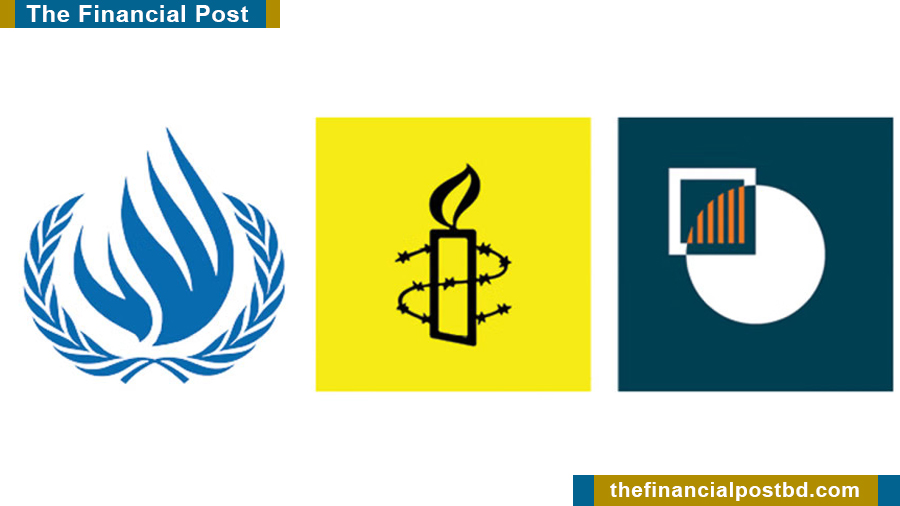

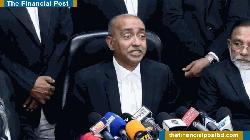 Attorney General: Caretaker system will serve as supportive mechanism for democracy
Attorney General: Caretaker system will serve as supportive mechanism for democracy
 15-year-old arrested, sent to jail over joining BCL rally in Cumilla
15-year-old arrested, sent to jail over joining BCL rally in Cumilla
 Global website outage due to Cloudflare issues
Global website outage due to Cloudflare issues
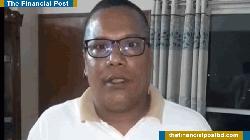 DU deputy registrar arrested after FB post on Hasina's verdict
DU deputy registrar arrested after FB post on Hasina's verdict
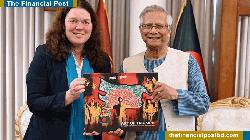 Awami League can't contest polls: Prof. Yunus
Awami League can't contest polls: Prof. Yunus
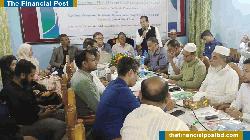 Cluster Development Plan Workshop Held in Satkania
Cluster Development Plan Workshop Held in Satkania
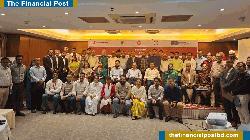 Ctg workshop seeks local access to disaster management fund for early action
Ctg workshop seeks local access to disaster management fund for early action
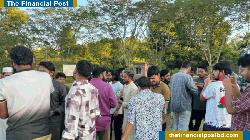 Comilla University Atmosphere Turns Festive Over Sheikh Hasina’s Death Sentence
Comilla University Atmosphere Turns Festive Over Sheikh Hasina’s Death Sentence
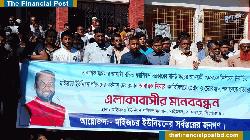 Human Chain in Bajitpur Demands Removal and Arrest of Union Chairman
Human Chain in Bajitpur Demands Removal and Arrest of Union Chairman
 HSC re-evaluation results published
HSC re-evaluation results published